I'm Eboni! Capricorn. 33. She/Her. Black first. Mainly BL's. I have Recs if you need/want them. Also some KPOP content.
Last active 60 minutes ago
Don't wanna be here? Send us removal request.
Text



"Come closer."
REVENGED LOVE (2025). EPISODE TWENTY ONE.
182 notes
·
View notes
Text

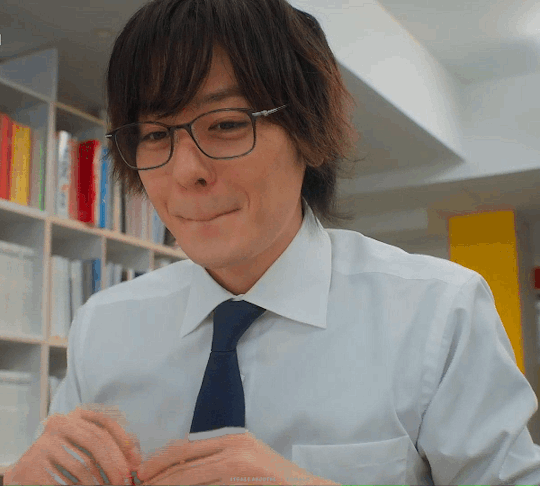
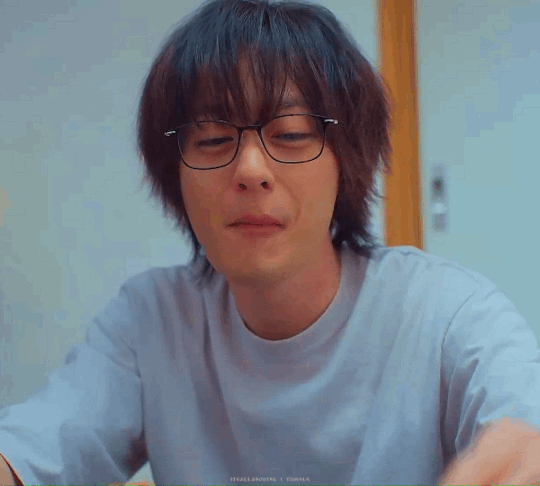

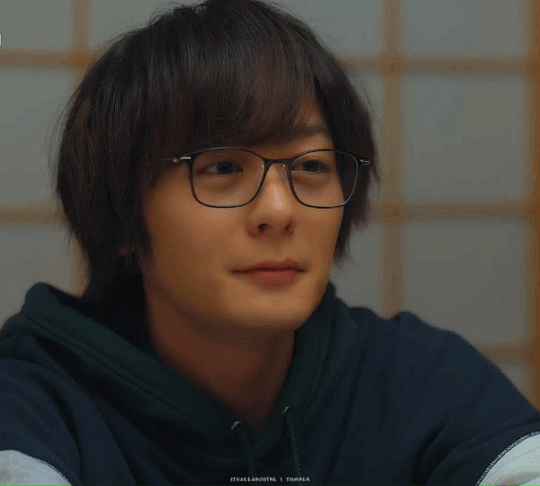
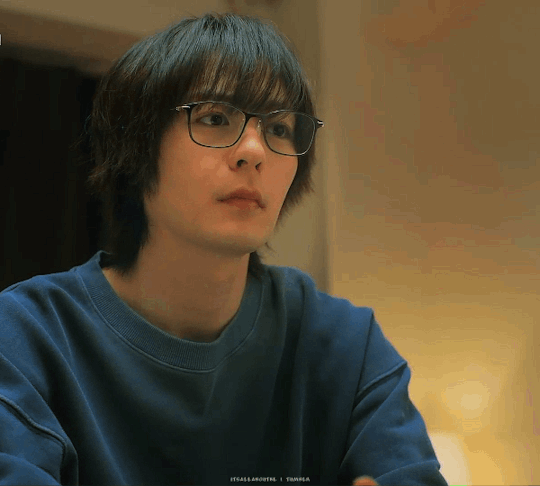
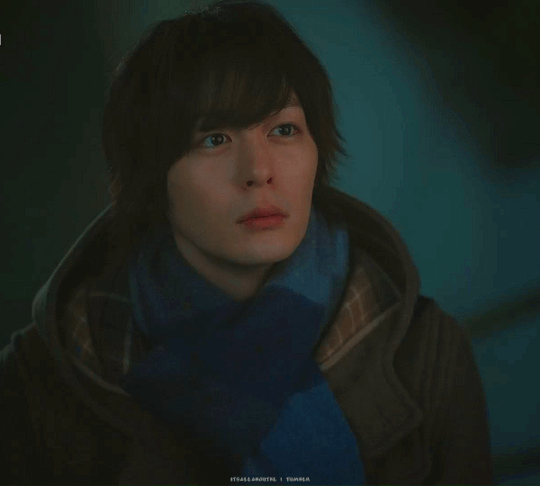

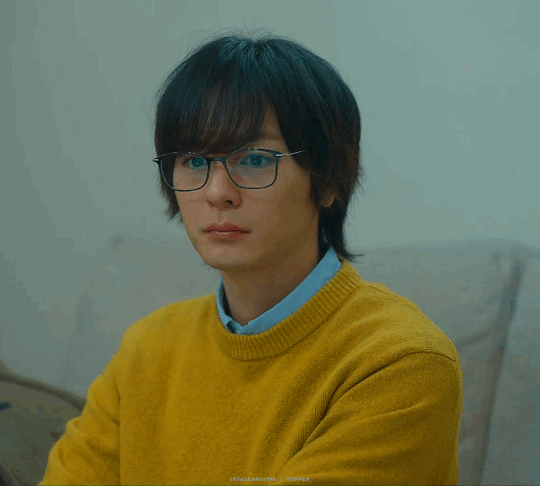

Inukai Atsuhiro as Hozumi Yutaka in each episode of "Our Dining Table"
↪ for @bellepark, happy birthday my Saturn soulmate 💞💞
221 notes
·
View notes
Text










Love Sea: The Home for Lovers (2025) | S01E01
Love Sea ~愛の居場所~ ‧ Drama ‧ 2025 Link: GAGA | Viki | YouTube | iQIYI | WeTV | Tencent | Web 01/12 Episodes >>> 08/2025
18 notes
·
View notes
Text
“I don’t like sharing.”

Love Sea: The Home for Lovers, Ep 3 (2025)
6 notes
·
View notes
Text








I'm not jealous.
Masato Kunigami and Shun Nishime in LOVE SEA - THE HOME FOR LOVERS (2025)
27 notes
·
View notes
Text

Condom mention! Yay! Truly rare in Japanese BL.
19 notes
·
View notes
Text






fortpeat x weibo gala 25 picking up their awards for best promising artist (peat) and breakthrough new force artist (fort)
45 notes
·
View notes
Text





We've been through so much, just to get here.
124 notes
·
View notes
Text





27 notes
·
View notes
Text
no one loves and misses 180 degrees more than pond ponlawit
#i saw a live he did where he was talking about how he wondered how his character was doing now#i can tell he really enjoyed that body of work#180 degree longitude passes through us#pond ponlawit
26 notes
·
View notes
Photo





#i did a double take#i remember the johnnytimmy craze#gu hai x bai luo yin#addicted#timmy xu#johnny huang
137 notes
·
View notes
Text


Lapsitting, smiling kisses and forehead touches. The cutest boys in all the land are going strong. @absolutebl This show was truly written for me.
349 notes
·
View notes
Text







"Come home with me later"
278 notes
·
View notes
Text
The Portrayal of Thai Queer Ordinary Lives in I Feel You Linger In The Air
In honor of 3 years since the premiere of my all time favorite and Thailand's first period BL series - I Feel You Linger In The Air, I thought it would be nice to revisit and write about or rather compile some information on how IFYLITA paid tribute to real queer ordinary lives through the portrayals of the character Niaw, the Green Katoey in Episodes 6 and 10 and the lesbian couple Choi and Thom in the opening scene of Episode 7.
I found this Talk on BL Series: Gender Diversity and Pushing for Equality Laws with the director and screenwriter of I Feel You Linger In The Air (originally dated 20 October 2023) where they elaborated in detail on the addition/incorporation of queer historical figures into their series.
disclaimer: translation by myself and saltymarbles, rough translations may contain minor inaccuracies, i'm open to all edit comments and suggestions
Director Tee Bundit Sintanaparadee: If you ask if we're afraid to adjust the series from the novel or something like that because we know fans of the novel are like... when they love something very much, they really respect the accuracy like it has to be 1 2 3 4 5 6 7 8 9 10 like this. So like if you ask about when we're reading the source material and then we're adding more, it doesn't mean we want to modify the story so much that it becomes a mess. But it's more like we want to add or reduce something for it to be better [in a series format]. So maybe some people might not like it when there are changes and things like that. But it's one of the joys of the showrunner when we're making a series. Yeah, so I felt that when we add something new [to this story], there must be a message of some sort, so it isn't just like we're adding things in and getting nothing out of it, there has to be a meaning. Because our story is about going back to 1927 so like "Are we really not going to talk about sex in that era?" Something like this. So we wanted to talk about it, make [the message] louder and clearer that it wasn't that easy for people living in that era. There are so many things that people [in that period] have to go through. Like it might be easier for people in a developed world like nowadays but it's definitely difficult back then and we really wanted to show the struggles of people in 1927. And it's not just [the struggles] for the main characters but also for other people in history.
So [we got screenwriter] Bass to go look for more information. We researched and found out that there are stories like this and that. [We] incorporated these to an extent in order to give the feeling like we're talking/recording history which must be talked about. So when the audience see that and they go back to research on [history] information in the series, it's much more fun. This includes details like the food, the costumes, art and many things like that when we go back in time, and not just the story of the characters. This is why we had to do a lot of research. For example, there's the character of Niaw, the Green Katoey or Thom - Choi, the female couple in that era. Those stories are mentioned but it's not like we're bringing them up and then discarding them (t/n: Tee is trying to explain that he's not just mentioning them for the meaningless sake of mentioning them) These are stories that we try to mention/bring them in for them to have Influence on the storyline of that EP. Something like that, so this is another gimmick that I feel that the feedback is good. So that's why I said when we make the storyline with strong foundation or in a good way, then the audience will see it more and more. People will see these things, they will rememer and and talk about them. This is what makes me happy when there are a lot of viewers who talk a lot about the messages that we want to communicate. Right, Bass?
Screenwriter Bass Somchai Tidsanawoot: Okay, well the true difficulty of it is during the research process. Like how do we make it the year of 1927? Honestly, the difficulty with Thai history, when I spoke with a researcher, is that we have very little records of “smaller people”* in the kingdom. So it was similarly difficult for us, we’re not people from the past era and how are we to travel back in time to that era? We needed to use some imagination — which is something I need to admit — with the information which we have. As P’Tee has said initially, [we want] IFYLITA to recount history from that era and [official] historical records consist of [mostly] records of people who should be praised. However, we are more interested in the records of the “smaller people” but these people are not really mentioned. I felt this during our research that we didn’t really have that much record on them. When we research into these “smaller people”, it also has to do with sexuality — what were the different genders/sexualities like then? This guided the characters that we've met such as Niaw, the Green Katoey. But we needed to “cheat” the history a bit by picking them up and bringing them to Chiang Mai [because they weren’t in Chiangmai at that time] and then continue creating a story for them so in the end their story got a space [in the series]. And also the news about the lesbian couple - Choi and Thom, it was news that made us go “wow” too. They were the first lesbian couple to announce their marriage on the news but shortly after, a tragedy occured and one of them was shot right? Even now, we are unable to be sure of who shot them. So these are the stories we try to connect/link them within the context of our story. And also to reflect clearly that [queer] history has existed for very long time and it's not like we just got lesbians, queers... if we go back even further, there's always been a diversity in genders/sexualities which has been around for a long time. But in the context of that era, the conflict of that period is the refusal of gender/sexual diversity, which reflects on until this day. Like even in this era, when you are giving in, it's like how much can one tolerate/accept [that diversity]. It's a question that goes on. The audience can also gets to collect historical records through our messages. Our happiness is getting to see audience capturing these and then discussing it like "Oh, this story really existed. It's recorded. It didn't just happen. So why did it happened?" And then people would have questions about this. It's like we're able to pick up [queer] historical figures so that they can be talked about like this, at least they have an identity, have flesh and blood, just like us. * ตัวเล็กตัวน้อย or ‘smaller people’ in this context refers to servants and queers -those people who are basically not royalty or super wealthy individuals.
1. Niaw, the Green (Kiaw) Katoey
Episode 6 of I Feel You Linger In The Air opens with Yai taking Jom to his favorite Puttyuban (ปัจจุบัน; lit. Present) Bar. In the middle of his conversation with James, Jom noticed Niaw, the Green Katoey.

Jom: Who is that? James: That's Niaw. But the villagers call him Niaw, the Green Katoey. Jom: Green Katoey? James: Yes. He likes wearing green and the way he acts is very feminine. Jom: But… he looks very happy. James: No Jom. Before he could get to this point. He went through alot. Niaw used to live in Phranakorn (re: Bangkok) before he fled to this city. The villagers in Phranakorn saw him as an outcast and he was always bullied or taken advantage of by the men. He might not be a saint for the things that he'd done in the past. But what he has always needed, was a place like this.

Although Niaw Green Katoey was not a person living in Chiang Mai like in the series, as explained by screenwriter Bass above, they were a real queer person in thai history. Here's an excerpt from a detailed article from The Cloud recording some known history of Niaw - The Green Katoey.
disclaimer: rough translations may contain minor inaccuracies, i'm open to all edit comments and suggestions
An Ordinary Person in the Pages of History: 'Niaw the Green Katoey,' a Century-Old Celebrity of Bangkok Ordinary people seem to be cursed into oblivion, always forgotten from the face of history. In truth, some of them have played roles no less significant than the powerful and the famous. It’s always a puzzle, though, that whenever the small stories of these individuals have a chance to be revealed, they never fail to cause a sensation. In the blink of an eye, I want to introduce you to a man who was once a household name on the lips of Bangkokians during the 1900s to 1910s. Please, allow me to introduce 'Niaw - the Green Katoey.' Why am I writing about this person? The simple reason is that it's incredibly enjoyable to unearth the details of someone's life from the past who isn't often mentioned today and to present them to you, the readers. And I also believe that you might feel the same excitement I do. He was a man of medium build, around 30 years old, with reddish-brown skin and a thick, dark green beard and mustache. He wore his sideburns tucked behind his ears. When he walked, he sashayed like a woman. Some people called him "E-Niaw." It wasn't just his name; the clothes covering his body were also predominantly green. He especially loved wearing 'pha ang hin' (a hand-woven fabric from Ban Ang Hin, Chonburi, popular since the reign of King Rama V). Niaw was likely to be found strutting around the gambling dens near Sam Yot gate. This area was an area which was lively and housed many opium dens as well. So, he made a living from offering massages to those who smoked opium in the area. [...] Given the vastness of history, the life of an ordinary person like 'Niaw the Green Katoey' may seem like a tiny, almost invisible dot. But we must not forget that the voices that emerge from these many dots can also become a powerful force. I am deeply happy to have serendipitously gotten to know this effeminate, great-grandfatherly figure through a musty-smelling old book, and I am delighted to be able to share his story with you.
Although like Bass said, they did have to 'cheat history' a little bit by moving Niaw, The Green Katoey, a famous Bangkokian to Chiang Mai to incorporate them into their story, it's an honor to see how IFYLITA used 'a semi-fictionalized version of an actual femme queer in thai history to humiliate straight elites' for the reveal/takedown of the villains/antagonists in their story in such seamless fashion.

2. Choi and Thom
Episode 7 opens with a female couple enjoying their afternoon together, right before tragedy struck when one of the women, Choi was brutally shot dead as her partner cried out to her.

Following this opening scene, the news of Choi getting murdered was discussed by Khun Yai and his family during breakfast in a newspaper dated 16 June 1928.
Yai's Dad: Luk-ka-paed marriage (วิวาห์ลักเพศ). Mrs. Choi was attacked and shot, her intestines gushing out. One word came out of her and she died. I knew this would happen that they would definitely not survive. This Sri Krung newspaper is so diligent with reporting news that isn't really a story. Yai's Mom: What's the matter? Yai's Dad: It's the story of a luk-ka-paed lesbian married couple being shot dead. I had already guessed that there would definitely be problems and they won't stay together for long. Not only are they are strange, they're even parading it to the world. Yai: But something like this, it could also happened a male husband and female wife, right? And another thing, this matter happened because of an outsider. It's not like the two of them hurt each other. Yai's Dad: Well, there could be. However, there are a lot of [straight] couples who are living their lives smoothly, right? But before that luk-ka-paed couples usually don't last long. They don't end well. If it doesn't end in a lawsuit, then it's deaths tearing them apart.

The accuracy of details in this little tribute/reference to the tragic lesbian couple in thai queer history was exquisite. The production got the exact time period, the name of the real people in history, the terminologies used in the past down. Here's a post from The Nation Thailand detailing the story of Choi and Thom.
In 1928, the legend of the void marriage, a marriage that is nonexistent according to the operation of law, between two women came to be. The marriage between Choi and Thom was held at Choi’s house in Thonburi province on Wednesday, May 2, 1928. Choi was the groom, and Thom was the wife. Despite not passing on an official law, Buddhist wedding traditions allowed both families to hold and grant the ceremony. In the event, monks were invited to chant Buddhist mantras and wish each other an auspicious ceremony. A dowry was also given by elders on both sides to propose. Their marriage was seen as strange by society since, back in the day, Thai people believed that if you are a woman, then you will have to marry a man to be seen as “appropriate.”. According to the Royal Institute Dictionary 2011, the wedding between the couple is called Luk-ka-paed (ลักเพศ), meaning unnatural. It was defined as when a person changes their appearance or clothes to be different from their birth gender. But Choi and Thom’s marriage life came to a devastating end after being married for only one month and 13 days. On June 14, 1928, Choi was murdered in their house, where Thom and people in the area were left in the midst of shock. At that time, many newspapers covered their story, especially Srikrung Newspaper, which was especially interested in the couple.

Urban Creature wrote 'I Feel 'Them' Linger in the Air - A Look at the Inequality in Thai society through the drama 'I Feel You Linger In The Air'', which is one of my favorite articles discussing the political issues of IFYLITA. The particular excerpt in this article which struck me the most, was the commentary on the inequality represented through the usage of different dialects.
disclaimer: rough translations may contain minor inaccuracies, i'm open to all edit comments and suggestions
"Don't speak like that." This short sentence, uttered in the Northern Thai dialect by a Siamese master to a Lao servant, reveals much. The local dialect spoken by Khun Ueangphueng subtly conveys her acceptance and respect for Muey as an equal, without distinction of class or ethnicity. In reality, their relationship is incredibly complex, interwoven with power structures in multiple dimensions. Beyond the master-servant dynamic, where the master holds absolute power, this mistress is also the daughter of a royal commissioner sent from the central government to oversee the Phayap Monthon as part of King Rama V's policy to integrate the vassal states of Lanna into the Siamese kingdom, alongside traditional customs like forming kinship ties with the Northern royalty (Princess Dara Rasmi, the Royal Consort). However, the unification of the nation was not smooth due to ethnic differences between "Thais" and "Laos" (a term used to refer to Lanna people, subtly implying disdain). Even in the reign of King Rama VI, efforts were made to promote Thai identity and erase the "Lao" identity from the Lanna people, yet Thais themselves still divided into "Southern Thais" and "Northern Thais." Siamese officials from the south often boasted of being more "civilized" than those from the north, and exercised their power to extort taxes, leading to constant resentment and conflict. When the top-down policy of changing the ruling class proved ineffective, a nationalist policy was initiated for complete territorial annexation. Religion and language, closely intertwined with the lives of the villagers, were controlled. Educational curricula were altered, Lanna script became forbidden, and the identity of the indigenous people was being erased. It seems ironic that Siam so greatly feared Western colonialism, yet at the same time, learned to use the same "assimilation" methods. They tried to declare that they were helping to develop the "barbaric" land, but are we sure that the purpose of developing communication systems like telegraphs or building the Northern Railway wasn't also to centralize power? It's interesting to consider what Lanna people saw Siam as: a deity protecting their land, or truly no different from the white people who brazenly intended to strip them of their rights and liberties and seize their economic resources, all while daring to claim benevolence. Are we truly "the same Thai people"? If so, why have we never been equal? Even today, with Siam and Lanna officially united as Thailand, some people still use ethnicity to demean others. When we hear the terms "Lao face" and "Thai face," we immediately understand the speaker's differing intentions, just as when people from other nations use our ethnicity to imply backwardness, underdevelopment, or ugliness. If we dislike being sarcastically told by foreigners that we "look like Thais," then we should stop using the names of neighboring countries as adjectives to describe "uncivilized" behavior.
Feed Y also recently released a video with BL academic Professor Natthanai Prasannam discussing the portrayal of gender politics in I Feel You Linger In The Air and its importance as a prophecy/wake up call for marriage equality of same-sex couples.
youtube
In this excellent thread on 'How 2023 TV Series I Feel You Linger In The Air and classic Thai romance fiction ทวิภพ (Tawi-phop) 'mirror' each other' by screenwriter Jattawa (of Khemjira The Series), they wrote:
I Feel You Linger In The Air is about how to change for someone's better lives, especially the forgotten ones. I Feel You Linger In The Air did not only 'queered' the straight classic romance in terms of gender, but also it 'queered' the political point of view to something progressive & shed light to marginalized communities that were rarely seen on Thai media.
Happy 2nd Anniversary to I Feel You Linger In The Air (August 18, 2023)

My previous posts on I Feel You Linger In The Air
The Storyboard: Interview with the Dee Hup House director Tee Bundit - On IFYLITA's budget and his passion for IFYLITA
Bright and Nonkul's insane preparation for I Feel You Linger In The Air
Nonkul and Bright's experience in queer media prior to I Feel You Linger In The Air
Timeline of I Feel You Linger In The Air
Explanation of IFYLITA's Ending
Incoherent praises for Bright Rapheephong's performance of Khun Yai
#oh wow this is incredible#let me go cry some more over this series#i feel you linger in the air#ifylita
68 notes
·
View notes
Text




MILE PHAKPHUM & APO NATTAWIN as Tanwa Chatbodi & Trin Suwannapas Shine (2025)
#i was wondering what language tanwa was speaking#RUN THAT GAME TANWA#trintanwa#shine#shine the series
294 notes
·
View notes














